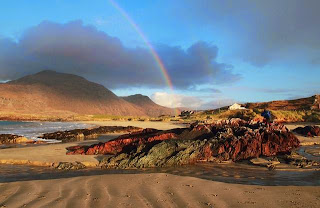Denis Mukwege: "women may not be used as battlefields"

Euronews-Denis Mukwege, thanks for being with us. The Sakharov Prize is far from being the first distinction that receives, others preceded him. But what are these awards, these medals, when we are confronted, on a daily basis, with the worst that man can do?Denis Mukwege â€" "we need the solidarity of European States to fight an evil that devastates the Congo. Rape with extreme violence against women in conflicts tends to generalize it. I think it is, extremely, dangerous to use this weapon because it destroys our humanity. “Euronews-more than 40,000 women and girls were treated in hospital since it opened 15 years ago. Are victims of what?D. m.-Are women who were raped, often in public, in front of husbands and children. These violations are collective torture, with regard to the reproductive system. Women come to me because they have serious injuries in the genital tract.Euronews â€" these acts are often committed with a surreal sadism with broken bottles, pipes, piles of weapons. Who commit these atrocities and why?D. m.-Unfortunately, in the eastern part of Congo, we have many armed groups from Burundi, Rwanda and Uganda. To these groups, are to join the young called "Mai-Mai", which are local armed groups, but all suffer brainwashed to destroy, and in fact destroy communities, expel people from their land to occupy and exploit.Euronews â€" Mentioned Kivu. This is the eastern region of the Democratic Republic of the Congo that the violence has intensified, for more than 20 years. There are battles between armed groups for control of land, why? There are natural resources in these areas. Can you tell us what riches are these and what is the relationship with the drama of women in Kivu?D. m.-in fact, this part of Congo is rich in strategic minerals, especially coltan and cassiterite, and these minerals have great demand as they are used in all electronic devices. Therefore, these armed groups, when you occupying the territory do not become only owners of the soil and the subsoil, which exploit at will. I can say that this form of destroy the woman, attacking your reproductive system, dramatically and in public, in front of everyone, is a way to terrorize communities.Euronews-and the State? The army is still there, there is a United Nations force of more than 20,000 men. That means we are all accomplices?D. m.-what we can see is that, 12 years after the signing of the peace agreement, the Government never controlled, really, these territories. Armed groups kill, rape and destroy and national army is supposed to protect the population, but women and children are also waiting. The presence of the United Nations â€" I always thought that the United Nations could help build peace â€" but it will be very, very difficult to put a UN soldier behind every woman or baby because these violations affect babies, too.Euronews â€" but the authors of these attacks are judged, processed? There is justice in Kivu?D. m.-Unfortunately, I have to say that there's a total impunity.Euronews â€" some people, mostly women, demanding the creation of an international criminal court to the Eastern Congo, to end this impunity. Supports this request?D. m.-not only support as I signed a petition in favour of an International Criminal Tribunal for the Congo. When it comes to millions of deaths, hundreds of thousands of women raped, we can't keep talking about numbers like those, without being able to start a process that will allow the truth to be known and that justice is done. The world today, can draw a red line saying: "women may not be used as battlegrounds in armed conflicts and if anyone does, let it be banished from humanity".Euronews â€" Was, two years ago, the victim of an assassination attempt in his home. After that, he exiled himself in Belgium, but after two months, decided to return, even with five sons and continued to receive threats. Can't bear a life outside of Kivu?D. m.-Congolese women are mobilized. Began to write to all authorities, the UN Secretary-General, the President of the Republic, asking me to come back and to ensure my safety. Themselves would guarantee my safety. Wanted, even, that I went back to Congo.At that moment I thought it was an emotional response, but a month later, when they saw that there was no reaction, began to organize themselves and, every day, they sold products of their fields at the hospital to pay my ticket back. That thrilled me, really. I realized the great strength of these women, who were living on less than a dollar a day but who were able to join to take me home. "When, finally, I weighed things, these women had weight because I told myself, in any case, my life isn't worth more than the lives of thousands of women, so I decided to come home.Euronews-so why don't you go to the logical point of issue and does not enter into politics? While not winning the political battle, the victims will continue to go to your hospital, or not?D. m.-Unfortunately, what I saw in the o.r... When I look at the injuries made the babies feel, effectively, disgusted and I tell myself that this cannot be possible. That's why I've decided to criticize the policy. But between criticizing and enter politics there is a way to do and I'm not ready yet.Euronews-one last question: what still makes you smile?D. m.-women. I don't know how many times I went into despair when treating a patient. I ask myself: How can she overcome this? But these women never go beyond that by themselves â€" but by children and by households. I think we can learn a lot from these women.
If You Enjoyed This, Take 5 Seconds To Share It










